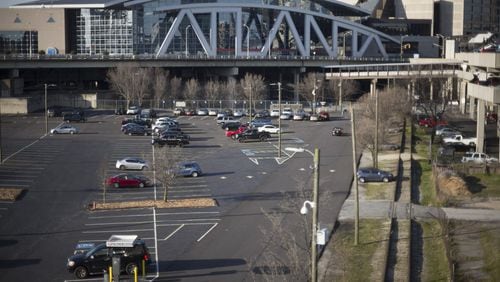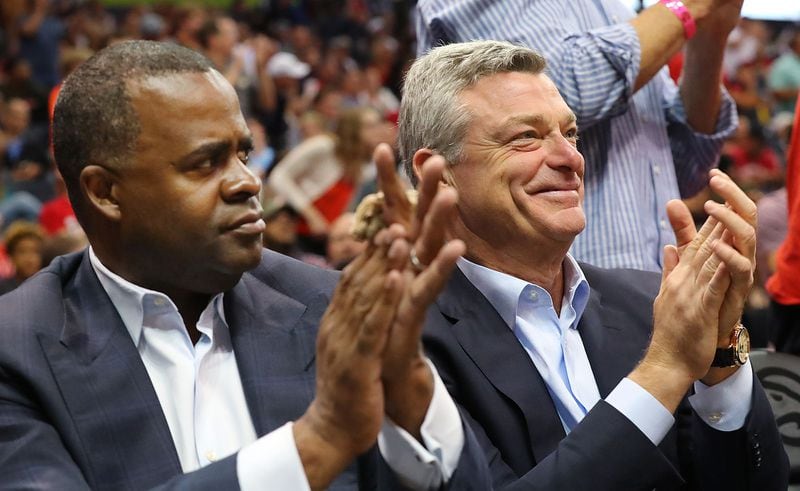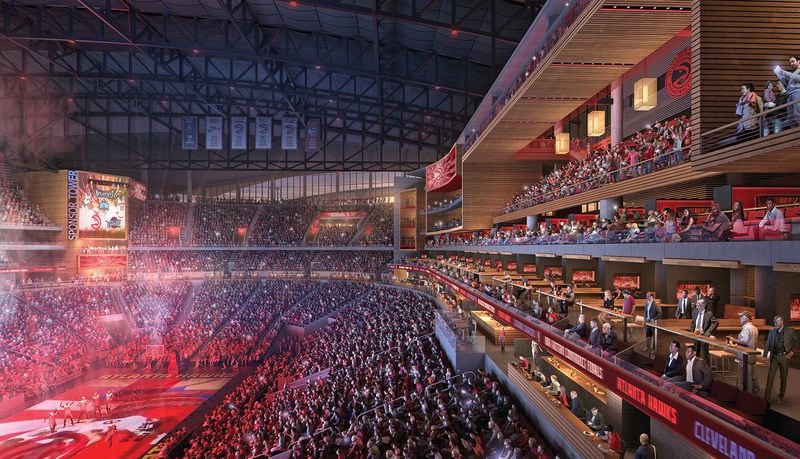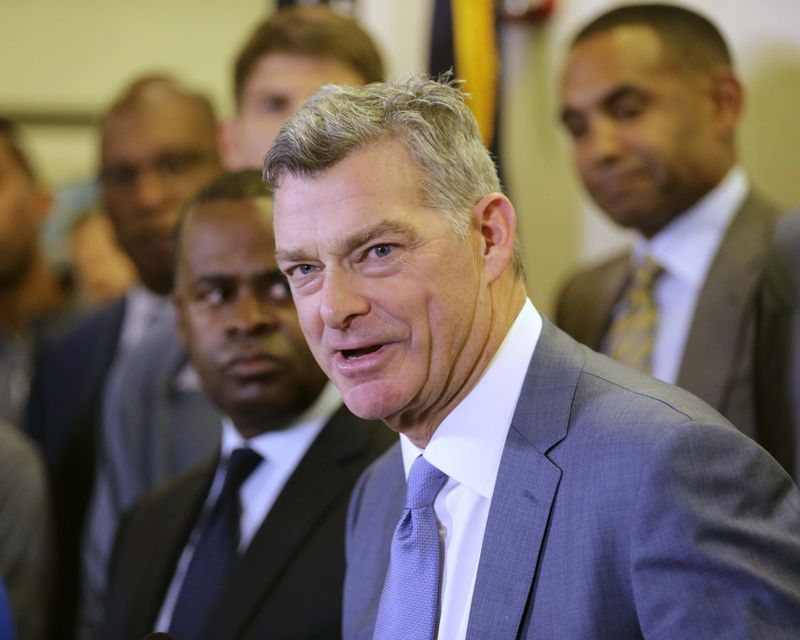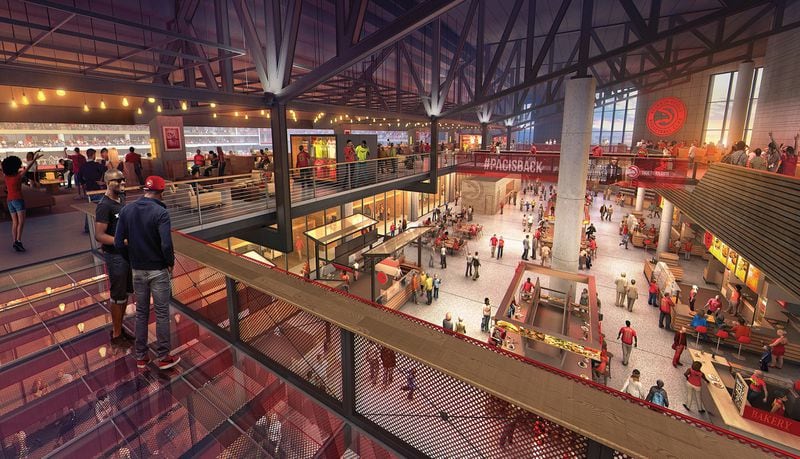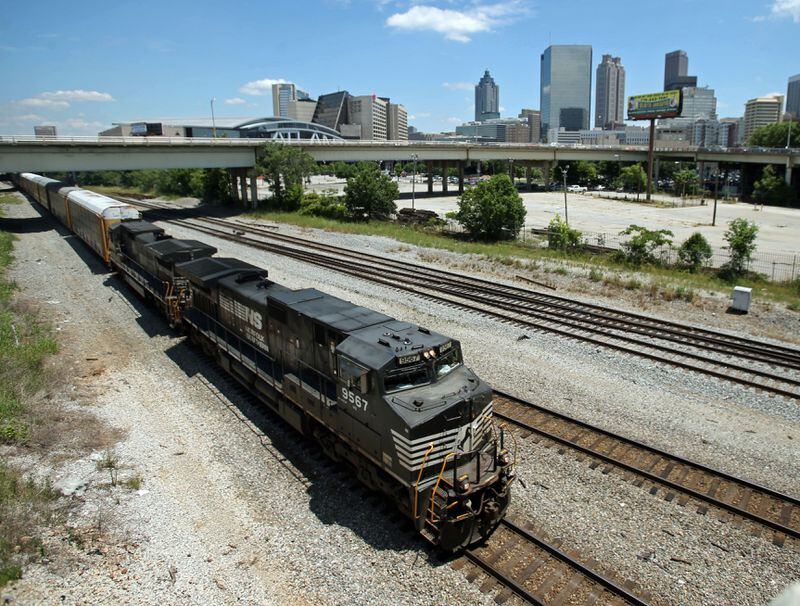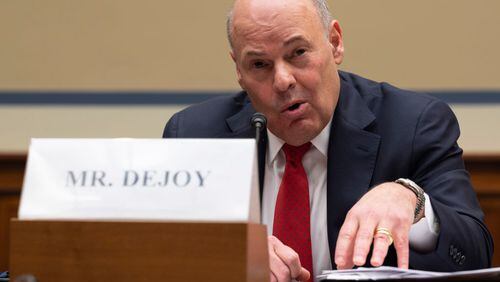The Atlanta Hawks and partners are negotiating to take control of parcels near Philips Arena for a future mixed-use development that would echo what the Braves built at SunTrust Park, people familiar with the situation told The Atlanta Journal-Constitution.
Word of the land negotiations, said to be advanced but not final, comes just days after the Atlanta City Council approved a deal for public financing to overhaul Philips Arena. On Monday, the council approved a new rental car tax agreement with the city of College Park with part of the proceeds going to a nearly $200 million renovation of the downtown arena.
In November, when Mayor Kasim Reed and the Hawks announced a renovation and lease extension deal that would keep the team downtown, Reed and Hawks lead owner Tony Ressler said the project could help fuel revitalization of the area near Philips known as the Gulch.
After the council’s approval, Reed said, “in the next 10 to 15 days we should be coming forward with a proposal for an additional billion dollars in investment as a result of the decision you all made today.”
It’s unclear if that was a direct reference to the Hawks, but people familiar with the matter said the Hawks have talked with property owners in the area, including the city and railroad giant Norfolk Southern.
Representatives for Reed and the Hawks declined to comment. A Norfolk Southern spokeswoman said she couldn’t confirm or deny discussions about land transactions.
The $192.5 million Philips renovation will undo the bank of suites on one side, connect disjointed arena corridors and upgrade the fan experience. About $142.5 million would come from the city, including $110 million through an extended rental car tax, and the remainder from city land sales. The Hawks will put up $50 million upfront, and extend their lease through 2046.
The AJC first reported in March 2016 that Hawks ownership had also started discussions with the city about a downtown entertainment district.
At the time, the idea was for a complex similar to L.A. Live at Staples Center in Los Angeles that would include more retail and restaurants and perhaps offices and residences.
The Braves’ Battery development, which includes bars, restaurants, a theater, apartments, offices and a luxury hotel, is also said to be a model. More pro sports teams want to diversify their revenue streams beyond television deals, ticket sales, concessions and merchandise.
It’s not known how much land the Hawks and its development team are pursuing, and it’s also unclear which sites the Hawks have in mind. The team and its partners are said to be interested in acquiring land or obtaining development rights to parcels within the Gulch, a weedy tangle of parking lots and rail lines partially covered by elevated roadways.
Redeveloping the Gulch has long been a dream of city officials and downtown boosters, with sweeping plans advanced — including a grand transit terminal — but little accomplished. The Philips renovation and the Hawks interest in adding development could bring a more limited but also more doable project.
Ressler is said to have tapped his brother, developer Richard Ressler, a principal at the high-profile Los Angeles development firm CIM Group, as a partner in the project.
Tony Ressler has not publicly outlined the team’s development goals, but he has talked of the Hawks being a “catalyst” for downtown development.
“This is far too extraordinary a city to have a downtown that isn’t much more vibrant,” he told the AJC last year.
Ressler has said the Hawks want to work with other groups also interested in downtown revitalization.
CIM Group pushed for tax incentives from the state Legislature for Gulch redevelopment in 2016, but that bill failed to pass in the form the group sought.
A change in law this year, however, could enable tax incentives for Gulch redevelopment.
Gov. Nathan Deal signed House Bill 342 that would allow sales and use taxes from retailers to be used to pay off bonds for infrastructure in certain areas defined as enterprise zones.
Credit: Jason Getz / AJC
Credit: Jason Getz / AJC
The bill attracted little notice during the session, but it could provide a substantial taxpayer-funded incentive to redevelop areas such as the Gulch.
HB 342 requires projects of a minimum of $400 million investment within a government-defined area certified as “chronically underdeveloped for a period of 20 years or more.” The enterprise zone would be established for a period of 30 years. The incentive cannot apply to casinos.
The Braves’ SunTrust development is in the vanguard of large mixed-use projects linked to sports venues. The team built a $550 million development surrounding the $672 million SunTrust Park.
Cobb County put up nearly $400 million as part of the deal, but tax incentives did not go directly into the mixed-use development.
Downtown advocate Kyle Kessler said he has heard buzz about big development coming in the city’s heart and hopes it’s not an entertainment complex. He hopes for a long-discussed multi-modal transportation terminal that would contribute to walkability and public transportation.
“If that were to happen my fears will be lessened,” he said.
